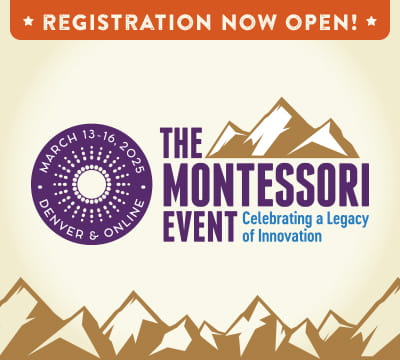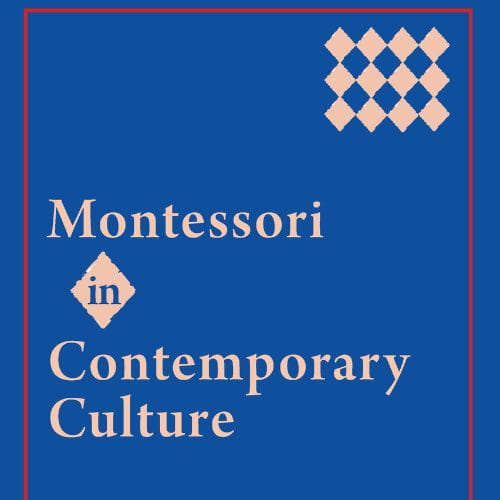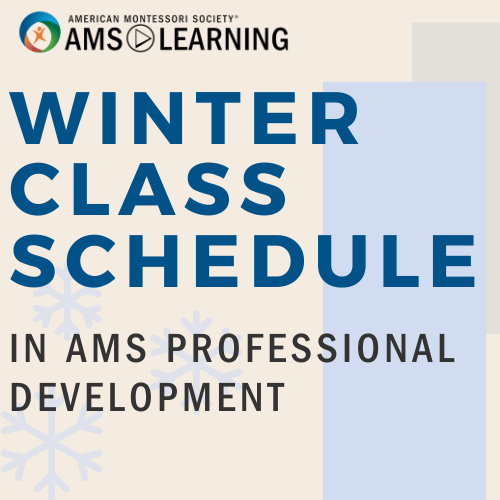Meaningful Adult Connections & Montessori Educators
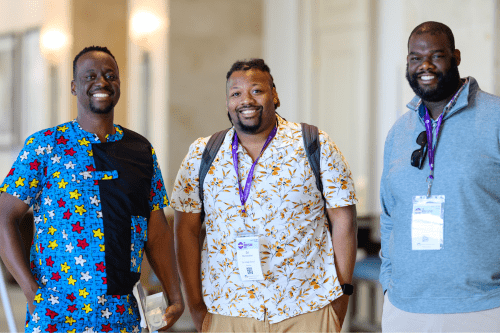
Following The Montessori Event 2024 held in Orlando, many questions, ideas, and new inspirations continue to circle in my heart and mind. The Event resulted in countless positive steps and conversations. The information-sharing and community-building were amazing. The workshops, speakers, and Days of Collective Action activities helped us to ground ourselves in solidarity and set intentions for another year of deep reflective liberatory work.
I left with an even stronger commitment to learn more from the AMS community—not only about how transformative the equity content and resources have been for many of our members, but also with a resolve to more fully invest in those individuals in our network who may feel that something is missing or problematic.
Crucial and recurring questions come to mind:
How can we deepen our Montessori practice and even dare to center ourselves as educators, researchers, and school leaders?
As we dedicate ourselves to guiding children to embody their cosmic tasks, how are we offering that same gift to ourselves, and what ways of being and thinking continue to get in the way?
As a Montessorian and leader, not only do I need to continue to ask these critical questions, but I also have to be courageous enough to explore topics that may make us uneasy or which may be difficult to discuss. I make it a practice to seek out the truth behind questions and have found that a good place to start is having and sharing thoughtful discussions with people who find value in—and who may even be leading efforts to establish—safe spaces for Montessori educators.
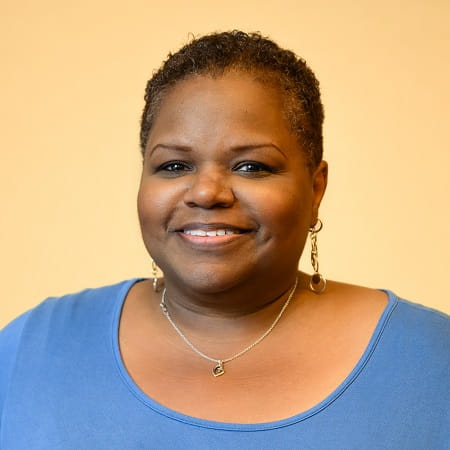
Candy has served as an organizer and facilitator of the AMS Montessorians of Color Affinity Space since it launched in 2020. This group was designed to amplify the work and lives of Montessorians of color. It is a critically conscious virtual gathering where Montessorians who identify as BIPOC come together in a place where their voices and experiences are centered.
In this discussion, Candy shared her perspectives regarding the importance of meaningful connections amongst adults in our classrooms and other Montessorian spaces, the role of the Montessorians of Color Affinity Space, and her hopes for the future.
When you think about the timing of Montessorians of Color in its formation, how are current national policies and the associated campaigns impacting the work of the group and how members feel in this space?
The group started in 2020 during the lockdown. We'd all been isolated and separated for about nine months. Initially, it was about us just being together. I remember going into that space and being amazed at the variety of people who identified as Montessorians of color. Until then, I had a narrow definition of who Montessorians of color were.
Early on, we tackled difficult topics. We read articles and explored the characteristics of white supremacy culture. A lot of that was about looking for ways to articulate our experiences like microaggressions as these are all things that happen to us collectively. A core group of members started to reveal themselves.
Since then, the need for community has allowed us to become a truly supportive group of friends and colleagues. We no longer follow a rigid agenda or use the space to do social justice work. The group agreed that the only work it wanted to do was to come and be seen. Sometimes the meeting starts with someone coming in and carrying this incredible weight. They need a place to set it down where they don't have to explain, justify, and defend why they're hurting. They can just be and not necessarily need solutions—not have any of us come to their rescue or save them. For us, just being there as witnesses is more than enough.
One of the things that multiple keynote speakers at The Montessori Event said that resonated with me was that we are witnesses to one another—not only during our professional journeys as Montessorians but also our personal journeys.
Why do you think a space like this is critical?
Most Montessorians of color work in predominantly white spaces. Many of us are the teachers who are asked to support the children who are having difficulties or are seen as having behavioral problems. Being able to speak from very nuanced or even unspoken collective experiences and not having to defend ourselves, is a balm of self-care, at times.
Being able to show up in our full humanity, with our cultural references and ways of being, and not have someone police our tones, or question the way that we articulate something or why we choose to pause from the lessons in our albums to intentionally talk about Black people in history or Black composers outside of February…Not have someone go, “Well, why don't we save that for Black History Month.”
This space is so important.
Our Latinx Montessori members have come and wanted to be in that space and talk about how wonderful it is for little girls in their classes to see their curly hair—and understand that their hair is curly and beautiful. Sometimes there may be discussions about putting brushes and hair grease on the practical life shelf in the classroom so that our BIPOC students can learn how to care for their hair—having it not just be a mirror and a regular brush, because our hair is different. Just being in that space and saying, you know, you could do this and not have someone say, “That was not a part of my training or why would you do that?”
When we get together, we can say whatever comes out of our mouths and feel safe to know that the tone won't be policed. The language we use won't be questioned. We can show up in our full humanity.
When we go into schools where we have to slip on this costume that somehow legitimizes us as Montessorians, it gets to be exhausting.
As Montessorians of color, we discuss philosophy. We talk about teacher training, child development, and planes of development—all intentionally through the lens of us as our most authentic selves. We are very clearly Montessori educators and leaders; that is never lost in the conversations. But we are that, and we get to be the other important parts of our identities—unapologetically—when we're together in that space. Bottom line, we need to have this space where we can come, celebrate, cheer, fall apart, or speak our dreams into existence.
What's something that you wish we as Montessorians would stop doing to one another?
There is so much tension that accumulates when I’ve felt that parts of me had to be left at the door to my classroom—that all of me wasn't going to be welcomed if it wasn’t carefully crafted in a way that was considered refined and elegant, or beautiful and quiet, or calm and gentle; if I wasn’t speaking slowly; and if my hands weren’t carefully folded just so.
It frustrates me to know that we as adults are often having a hard time trying to fit into some dominant view of Montessori, instead of creating the space to support one another as we are. We wag our fingers and say, “Don't bring that to school with you. Don't bring that into the classroom with you. Turn it off. Shut it down. Push it away, and leave who you are outside so that you can come in and blend into the background of the classroom.”
It does a disservice to the Montessori community. We need to be fully, completely open and available for children. You can’t simply park part of your humanity at the door so that it doesn't get messy and still be truly present for the children. It takes so much energy to disregard or set aside whatever real life is happening.
The other part about that is what are we teaching children by not honoring who we fully are? Many programs teach children how to walk through their feelings and how to talk about emotions and all of that. What about us modeling that behavior so they are learning it directly from the humans that they spend every day with? I don't mean that we're all falling apart and rolling around on the floor, but I do mean being able to say to a child, “Today I feel a little sad or annoyed,” and giving that child the space to say the same thing. More than that, this practice allows them to be empathetic, compassionate, and kind human beings who step alongside with you and say, “I know. Sometimes I feel sad, too.” I think this is what Dr. Montessori would want for the child and for us.
AMS Affinity Groups
If you are interested in joining this inspirational community, please register or email AffinityGroups@amshq.org. The group respectfully requests that this space be reserved for people of color.
A few books to consider if you’d like to read along with some of the affinity group members
- Rest is Resistance by Tricia Hersey
- Set Boundaries, Find Peace by Nedra Tawwab
- No Ego by Cy Wakeman
About the Author
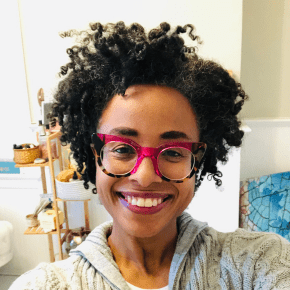 |
Maati Wafford (she/her) is the former director of equity and engagement for the American Montessori Society. For nearly two decades she has created brave spaces for Montessori educators to expand, build, and create more justice in the world. AMS credentialed (Early Childhood, Elementary I – II, Administrator) |
Interested in writing a guest post for our blog? Let us know!
The opinions expressed in Montessori Life are those of the authors and do not necessarily represent the position of AMS.


